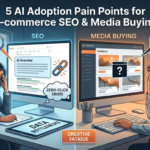What is Direct-to-Consumer?
Direct-to-consumer, simply put, is the process by which a product is manufactured and then sold directly to customers from the manufacturer itself.
No wholesalers, no retailers, no other middle avenues of procurement; just made and sold by the same company.
It’s a simple, in-house way of getting products out to the public, and much more successfully so thanks to the rise of the internet.
To Leap, or Not to Leap?
Understanding what DTC is aside and despite the fact that it’s been around since before modern transportation, we’re in a new era of it nowadays.
When contemplating whether or not to embrace a DTC model for your business, you’ll need to be both careful and savvy at the same time.
Why?
Because it’s a very complicated world littered with variety, and made even more competitive thanks to COVID-19 lockdowns.
In this article, we’ll be exploring options, successes, and things to consider when contemplating a direct-to-consumer business model.
We’re marketers, so our viewpoints may not be completely ahead of the curve, but the idea here is to get you thinking about your future before making the leap.
We’re hoping you’ll consider what could or could not happen from our viewpoint as the team working to promote your company.
Exploring Options
Like Harry’s or the Dollar Shave Club, you can produce your products in-house and then set up your own website to peddle your wares.

On the flipside, according to Modern Retail, you can exclusively use Amazon’s ecommerce platform and sell your wares there.
Or, on the flip-flipside, you can be like many other companies that sell through their own website and sell on Amazon or other ecommerce sites at the same time.
So which avenue to choose? That all boils down to your product, the market, saturation, your budget, supply-versus-demand, demographics . . . whew, so many different sources of data to consider. (And some people wonder why most companies have a board of directors especially when venture capital is involved.)
The key is to know what it is you produce, and then—based on your budget—decide what’s best to get your hopefully well-desired product into the hands of your customers.
Sure, there will always be niche products that can and will likely only be sold online by the manufacturer, but given the Warby Parkers and the Everlanes of the world, you too can find your right place with a ton of success.
Successes of Direct-to-Consumer
Success segue firmly in place—let’s take a look at some of the most successful organizations that have lined their pockets thanks to their direct-to-consumer model.
First, you cannot ignore Amazon. What first started as a website selling books (which you can see here) quickly became one of the biggest, most successful companies in the world.
Next up, Warby Parker. At just 10 years old, Warby Parker has revolutionized the eyewear market.
Starting with just $2,500 in 2010 by four friends who went to college together, they’ve grown to be worth well north of $1 billion and employ around 1,400 people.
Glossier is another notable direct-to-consumer business that started up in 2014. Emily Weiss (formerly with Vogue) is its founder, and she was able to initially raise $2 million in seed funding to get her newly formed business off the ground. Today, it is said that Glossier is worth around $400 million, and is considered one of the most “disruptive” brands in beauty.
Lastly, a shout-out to BarkBox which has seen earnest and consistent growth since its launch in 2011. They expanded quite a lot in 2020 (three guesses why), plan to go public later this year, and are valued at around $1.6 billion. BarkBox really should be on every dog lover’s radar. Heck, they even have an app that matches humans with dogs available for adoption via partnerships with local rescue centers and shelters.
Things to Consider
As mentioned above, you really do need a strong sense of self-awareness before going direct-to-consumer. Warby Parker has been mentioned multiple times because they seized on the market early enough that they were able to nearly corner it. But if you sell glasses, you might want to rethink how you go about your plans to implement a DTC plan.
Again, thanks to lockdowns, the DTC market is becoming increasingly saturated, so here’s where your savviness comes into play. It can’t just be about timely placed social ads and popular influencers who give your brand a shout-out. You have to move away from thinking DTC is the innovation, to how you want to structure and follow-through with your DTC model.
Procter & Gamble is a good example of what a massive company did in order to succeed in a DTC model. Rather than push certain products through their normal avenues of sales (distribution included), Procter & Gamble peeled off some select products to be promoted and sold via DTC on their own thereby making them feel more exclusive. (See Welly and Native Deodorant, subsidiaries of Procter & Gamble.)
The whole point here is to earn a profit while being as efficient as possible. There are complexities that even we can’t fathom, but we know a great place to start: Harvard Business Review. They have a solid, exhaustive article about the market, and it’s certainly worth a read.





